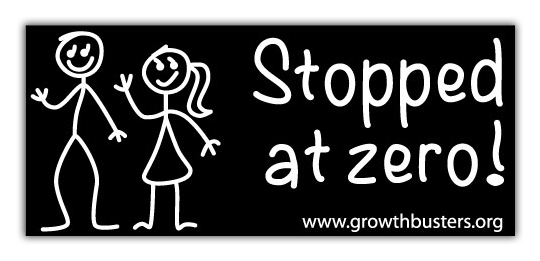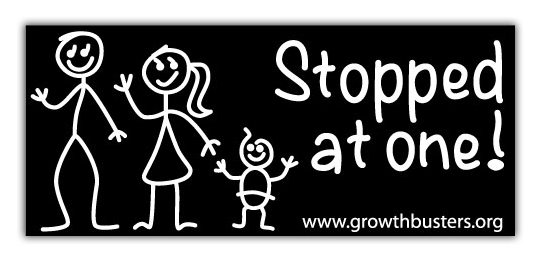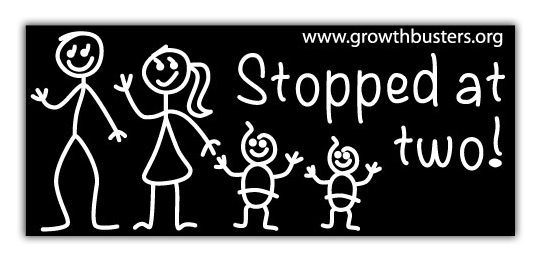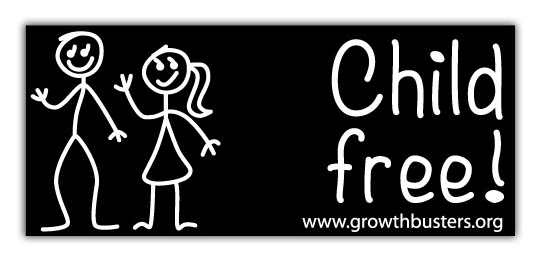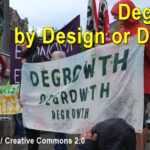
90: Degrowth – by Design or Disaster
Learn about a new think tank that’s doing some of the most important thinking on the planet. Matt Orsagh is co-founder of the Arketa Institute for Post-Growth Finance and co-author of a just-published white paper, By Disaster Or Design: How Finance Can Evolve to Avoid the Worst of the Ecological Challenges We Face and Enable the Transition to a Better Economic Model.
 That paper, and this episode, offer an introduction to degrowth, the rational response for a society in ecological overshoot. Degrowth is “an equitable downscaling of production and consumption that increases human well-being and enhances ecological conditions at the local and global level, in the short and long term.” We also explore how the financial industry needs to evolve as we transition to a post-growth economy.
That paper, and this episode, offer an introduction to degrowth, the rational response for a society in ecological overshoot. Degrowth is “an equitable downscaling of production and consumption that increases human well-being and enhances ecological conditions at the local and global level, in the short and long term.” We also explore how the financial industry needs to evolve as we transition to a post-growth economy.
Matt is also author of the Substack column, Degrowth is the Answer. The Arketa Institute is working to “normalize the conversation around ecological economics and degrowth in the financial world.” Steve Rocco and Anastasia Linn are co-founders with Matt Orsagh. The white paper was written by the three of them, and edited by Nicholas Harland.
Some upcoming events of note:
- April 29: Webinar to discuss the paper ‘By Disaster or Design’. Register here
- May 7-9: Matt, Anastasia and Steve will attend and present at the in-person gathering of the Barcelona Action Circle of Financial Leaders. This is the culmination of a months-long engagement organized by the world-renowned team at Research & Degrowth
- May 13-15: Matt will attend the Finance Montreal Sustainable Finance Summit in Montreal, Canada
- July 26-29: Matt will speak at the Degrowth Institute’s inaugural DeSchool event in Chicago
- Fall 2025: Arketa Institute will survey global financial professionals on their understanding of ecological economics and post-growth ideas to inform a report to be published by the end of 2025.
LINKS:
What We’re Doing Isn’t Working: It’s Time for a New Approach – Episode 9 of Dave the Planet podcast
Behavior Change to Provide a Bright Future – Episode 15 of Dave the Planet podcast
Planetary Boundaries – Stockholm University
The Serviceberry: Abundance and Reciprocity in the Natural World – by Robin Wall Kimmerer (author of Braiding Sweetgrass: Indigenous Wisdom, Scientific Knowledge, and the Teachings of Plants)
FURTHER READING:
Post-Growth: The Science of Wellbeing Within Planetary Boundaries
This Isn’t Capitalism — It’s Growthism, and It’s Bad for Us by Umair Haque, Harbard Business Review, October 28, 2013 Growthism: Its Ecological, Economic and Ethical Limits – by Herman Daly PDF version Text
Essays Against Growthism, by Herman Daly, published by World Economics Association Books
The Entropy Law and the Economic Process
Give Us Feedback:
- Record a voice message for us to play on the podcast: 719-402-1400
- Send an email to podcast at growthbusters.org
The GrowthBusters theme song was written and produced by Jake Fader and sung by Carlos Jones.
On the GrowthBusters podcast, we come to terms with the limits to growth, explore the joy of sustainable living, and provide a recovery program from our society’s growth addiction (economic/consumption and population). This podcast is part of the GrowthBusters project to raise awareness of overshoot and end our culture’s obsession with, and pursuit of, growth.
Dave Gardner directed the documentary GrowthBusters: Hooked on Growth, which Stanford Biologist Paul Ehrlich declared “could be the most important film ever made.” Co-host, and self-described “energy nerd,” Stephanie Gardner has degrees in Environmental Studies and Environmental Law & Policy.
Join the GrowthBusters online community
GrowthBusters: Hooked on Growth – free on YouTube
Join the conversation on Facebook
Follow us on Instagram Follow us on Bluesky Make a donation to support this non-profit project.
Archive of GrowthBusters podcast episodes
Subscribe to GrowthBusters email updates
Explore the issues right here, at growthbusters.org
View the GrowthBusters channel on YouTube
Follow on your podcast app so you don’t miss an episode:



Tags: degrowth, ecological economics, economic growth, economy, sustainability
Trackback from your site.
